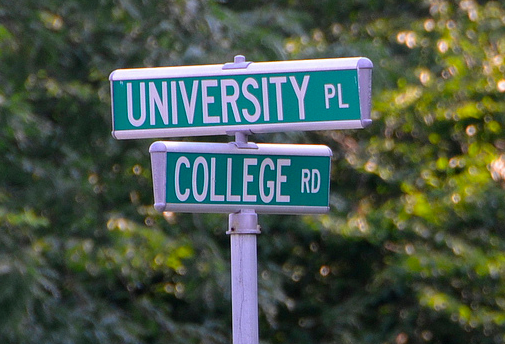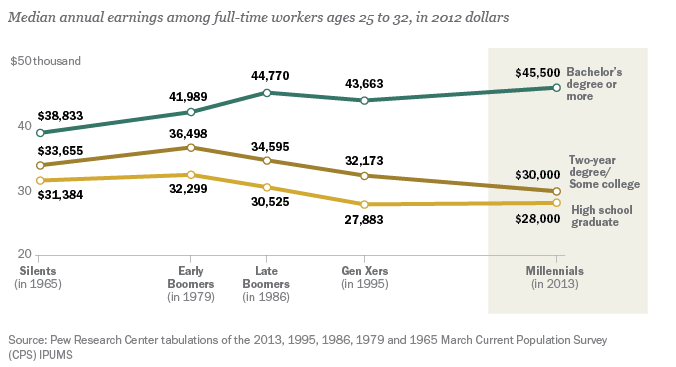Millennials Who Chose Not To Attend College Are More Likely To Live In Poverty Than Past Generations

(afagen)
Pew’s latest research, The Rising Cost of Not Going to College, outlines a number of reason why attending college is a good investment for Millennials. Millennials are defined as those born after 1980, however, when looking at economic situations Pew surveyed those ages 25 to 32.
The earnings gap between Millennials with a college degree and those with only a high school diploma is currently the highest it’s ever been. Millennials with a Bachelor’s degree or more earn a median income of $45,500 per year. That’s $17,500 more than their counterparts with only a high school diploma. The gap is $1,720 more than it was for previous generation.
Additionally, Millennials with only a high school diploma are currently faring far worse in terms of their economic situation than those in earlier generations who chose not to attend college. The study found that 22% of Millennials with just a high school diploma currently live in poverty, while only 15% of Gen Xers with only a high school lived in poverty at the same age. The Gen Xer data is based on a survey conducted in 1995 of people ages 25 to 32.
Even with the cost of attended college on the rise, 62% of Millennials who received a Bachelor’s degree or more said going to college has paid off.
In terms of employment after college or high school, those with degrees were more likely to find their position satisfying. College-educated Millennials said they have a career path and that their education was “very useful” in preparing them for a job.
But it’s never too late to return to school. The study found that 28% of those who have not obtained a Bachelor’s degree have plans to return to school.
The Rising Cost of Not Going To College [Pew Research Center]
Want more consumer news? Visit our parent organization, Consumer Reports, for the latest on scams, recalls, and other consumer issues.


